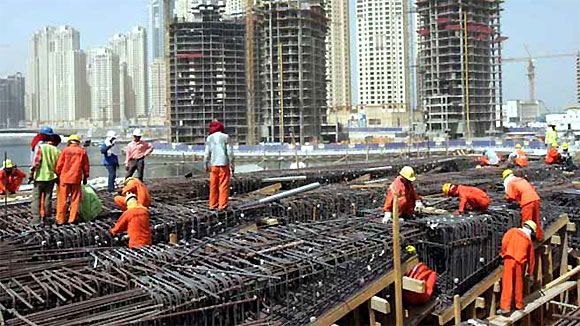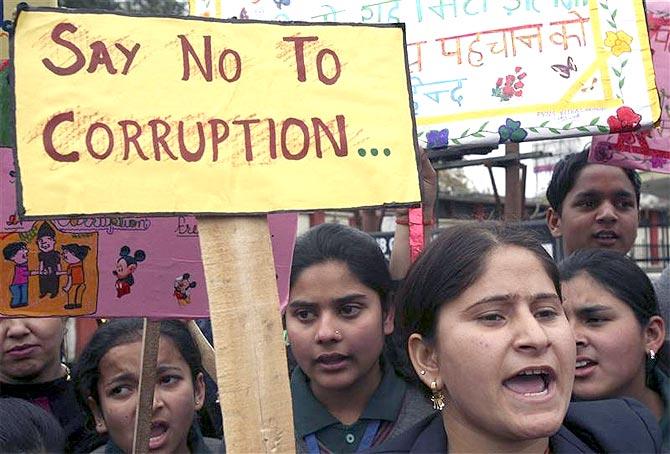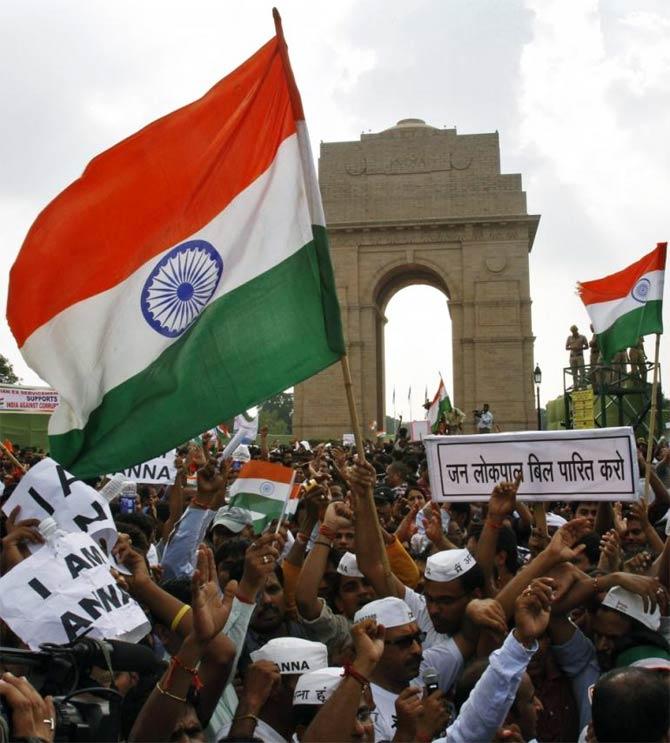Photographs: Arko Datta/Reuters BS Bureau
The latest World Bank report exposes the shallowness of India’s economic reforms.
India has been ranked 134th among 189 countries in the World Bank’s Doing Business 2014 report. Last year, the country was ranked 131st.
Thus, it takes 27 days and 47.3 per cent of per capita income to start a business in India, compared to 16 days and 19.8 per cent of per capita income in South Asia overall, and 11 days and 3.6 per cent of per capita income in OECD (Organisation for Economic Cooperation and Development) countries.
The time taken for enforcing contracts is 1,420 days in India, compared to 1,075 days in all of South Asia and 529 days in OECD.
…
27 days to start a business in India! It's UPA's failure
Photographs: Reuters
India’s performance is particularly poor in enforcing contracts (ranked 186th out of 189 countries), dealing with construction permits (182), starting a business (179) and paying taxes (158).
This reaffirms the criticism that ground-level reforms have been left largely untouched in the country, at the Centre as well as the states.
Bureaucratic hassles, corruption and delays are as much part of doing business as they were at the start of economic reforms more than 20 years ago.
Unfortunately, reforms and liberalisation have come to mean changes in the policy framework. Much of the national debate on reforms has centred round opening up one sector or the other for the private sector or for multinational corporations.
…
27 days to start a business in India! It's UPA's failure
Photographs: Reuters
While those changes are important, reforms at the ground level cannot be ignored.
Procedures remain opaque and immense discretionary power is still vested in the hands of officials.
The spate of recent corruption cases against businesspersons ought to have informed the government of this malaise. Unfortunately, nobody even bothers to pay lip service to it.
The latest World Bank report, in that sense, exposes the shallowness of India’s economic reforms. It shows that the buy-in on reforms in the country is far from complete, though Manmohan Singh, the man credited for dismantling the Licence Raj, is all set to complete two full terms as the country’s prime minister.
The World Bank report comes at a time when the government is trying hard to attract foreign direct investment into the country.
…
27 days to start a business in India! It's UPA's failure
Photographs: Reuters
Countries that compete with India for investments have done better. Many in the top-ten list are India’s rivals for investments: Singapore (ranked 1st), Hong Kong, Malaysia and South Korea.
The report makes special mention of Malaysia, which has, for the first time, made it to the top ten on the list: It was ranked 12th in last year’s report and has been ranked sixth this year.
In these times, when other countries are rolling out the red carpet for investors, India cannot afford to neglect this crucial aspect of reforms.
…
27 days to start a business in India! It's UPA's failure
Photographs: Reuters
The report was based on studying regulations between June 2012 and May 2013. The situation has likely worsened since then. After the telecom spectrum and coal-block allocation scams came to light, bureaucrats have become extremely reluctant to take decisions.
They fear that decisions taken by them now may be called into question five, or even ten, years later. The result is that the government has come to a standstill.
This has only made the situation worse for business. This inactivity doesn’t augur well for investments, growth and entrepreneurship.







article